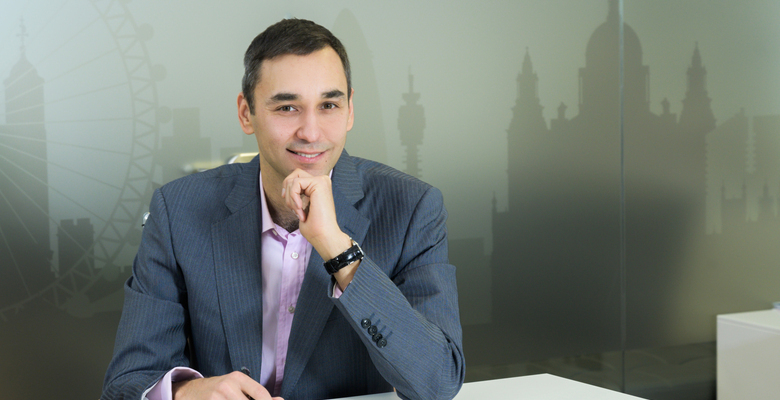
Business had only just begun to adapt to the new economic reality of growing inflation and burgeoning energy costs, slowly struggling on the verge of profitability, when the state decided to fill its coffers at its expense by raising taxes. What sectors have suffered the most over the last year? What needs to be undertaken to optimise business practices? Why won’t raising taxes solve the problem of inflation? Here are some real cases from entrepreneurs in various spheres: hospitality, tourism, the food industry, construction, preschool education and culture.
Darya Simanovich, the owner of the Chelsea Creperie and Chelsea Swim Spa swimming school

What problems has your business encountered over the last year due to the difficult economic situation in Britain?
There are many problems: staff salaries have risen by roughly 20%, raw material prices (ingredients have become 30% more expensive on average), the increase in energy costs (bills have tripled). Last year we raised prices twice, and now we have to raise them again as our costs have increased, but if we increase them for our goods and services, then, in conditions of falling living standards, demand will fall even further. It’s difficult for retail all over the world, and most shops are leaving the sector for online sales to make savings on rent. Only coffee shops remain on the streets, and more and more of them open each day. Due to the difficult economic situation and rising costs, the competition in this sector is becoming unbelievable. It’s difficult to survive because profits are minimal, and in some periods there aren’t any at all. Another problem that appeared because of Brexit and became worse during the pandemic is the outflow of migrants; approximately 700,000 have left London, mostly these were people working in hospitality. Finding qualified staff is really hard.
How are Rishi Sunak’s policies affecting small and medium-sized businesses?
Since April 2022, VAT in the hospitality industry has increased from 12.5% to 20% [returning to the standard pre-pandemic rate, translator’s note]. At that point, it would have made sense to raise prices by at least 7%, but we only put them up by 6%, because demand had actually fallen, and when prices for goods and services grow there is a risk of losing clients. Raising the rate of corporation tax on profits from 19 to 25% has not affected Chelsea Creperie yet, as there is no profit, but it does affect my other areas of business. There are also business rates, which are a property tax in addition to rent. This is paid by the square metre and goes to the municipal budget. At the previous, 100% level, we were paying around £15,000 a year. After covid, this was reduced to 50% and now Sunak is planning to raise it to 75%.
How can we come out of the economic crisis? Have any new solutions appeared?
Of course, we need to put up prices. Will will think about optimising the work of the business by reconsidering staff numbers and our working hours (the length of a day of work), looking for new suppliers with lower prices for ingredients and cutting our marketing costs.
Tatiana Henderson-Stewart, director of Little Cherry (Vishenka) Nursery

What difficulties has your business encountered due to the troubled economic situation over the last year?
The problems in our industry began during the pandemic. Although preschool facilities were open, many parents didn’t send their children to nurseries due to fear of covid infection. Then, financial losses and staffing shortages began to cause problems. Now the situation is only becoming worse, especially the task of finding qualified personnel, as salaries in our sector are uncompetitive when compared to other industries. Also, our segment is tightly regulated. Unlike other areas of business, the square metres of floor space we should have for each child is clearly set out by law. For example, children under two should have not less than three square metres of floor space each. Also, several staff members are required to watch each child and ensure their safety, which is a key concern for preschool establishments. This means we need to hire a lot of personnel. Currently, the regulations on staff numbers per child are being reconsidered to minimise labour costs and help the industry become more viable, but in my view, this is wrong because it will make it difficult to provide the necessary standards of safety and care for the children. For instance, for the 38 children who come to our nursery at different times, we will need 13 members of staff.
Where do you find staff?
Our staff has stayed. Currently, various professionals with teaching qualifications are arriving from countries including Ukraine, but the certificates they received in their home countries are not valid in Britain. To work here, they need to study to gain a qualification level from one to six. Also, they don’t know English, and we’re an English nursery. Even if our standout feature is that we’re a bilingual environment, all our paperwork is done in English.
Have the increased tax rates affected your sector?
There are no subsidies for nurseries so we pay the same taxes as other businesses. Our expenses have grown; energy bills have gone up, and all our supplies, such as cleaning products, stationery etc have become more expensive. We still don’t know what surprise awaits us when they change the business rate. We have slightly raised the cost of our services (by seven to eight per cent), but we were forced to take this measure. It is satisfying to see that we have a waiting list and a specific niche in the market. We hope we will grow in the future, but for the moment things have slowed down, most likely because of the general atmosphere.
Leeza Murina, owner of the Baked in a Bun bakery

What problems has your business encountered due to the difficult economic situation in Britain?
I can’t talk about Britain as a whole, but my bakery does have problems, and the main one is the rising price of ingredients, which have become a lot more expensive than the eight per cent ascribed to inflation. Last summer, I could buy a crate of butter for £38, now it costs £74. Electricity bills have doubled. I used to pay £1,000 a month, now it's £2,000. These dramatic price hikes mean that productivity and profitability are falling, and rather quickly too. Of course, we’ve had to put up prices for our wares by five per cent but it’s hard because our customers are also experiencing rises to their energy bills, so they’re becoming more careful in their spending. This means maintaining the same volume of sales is challenging. Despite mostly being a wholesale bakery, selling to restaurants and hotels, we are continuing to sell directly to customers at events such as festivals and farmers’ markets. Unfortunately, from month to month, we see other small producers disappearing.
How hard are things on the staffing front?
Difficult, of course. Our policies may have affected this; we’ve decided to keep to three rules; firstly, to maintain production standards so that we hold onto our clients, secondly, to monitor the cost of all ingredients carefully and constantly try to find suppliers who can deliver goods of the same quality, but at lower prices, and thirdly and most importantly, to do everything we can to hold onto staff who already work for us. We pay a decent salary and we support our employees. But now we’re planning to introduce a new contract and I think I’ll end up in the same situation as other producers, in that I’ll have to increase staff numbers and look for new workers. This is worrying as everyone is complaining that it’s a struggle to find good staff at the moment.
How do we get out of the economic crisis? Have any new solutions appeared?
We have found new markets and production volumes are increasing. Despite the tough conditions, our business is stable. Sales are approximately 20% higher than for the same period last year. We have also started to deliver goods to shops restaurants and cafes via wholesalers rather than directly as we did previously. This saves on logistics and transport costs.
Elena Foxter, co-owner and managing partner of Beechwood House Luxury Apart Hotel, Oxford

What problems has your business encountered due to the difficult economic conditions in Britain?
We have to look at the situation as a whole; everything started when Britain decided to leave the European Union, and all the most acute problems occurred after Brexit. Since then, all hoteliers have had problems hiring staff. The second problem, which came up after the pandemic, is the type of guests who come to us. Before the pandemic, only 20% were local, from Oxford, and I think it is similar for hotels in other towns, while 80% of guests were foreign tourists, 60% of which were from China. Now, 98.9% of guests coming to our hotel are British, from the domestic market, and it’s easy to see that we have lost a significant portion of our clientele. This is also due to the limitations on travel abroad still in place in certain countries, including China. The third problem, which has struck all businesses, especially those whose work is connected to property, is the incredibly dramatic rise in the cost of electricity and gas; bills have grown by 70%. For hotel owners, this is a significant part of their expenses and this rise affects the cost price of our services, making it impossible for us to leave our rates unchanged. Also, phone and internet services have gone up by 15 to 20%.
What steps is it necessary to take to survive the financial crisis? Have any new solutions appeared?
To ensure that the business develops, rather than just surviving, it’s indispensable to take three important steps. The first is to accept the situation; to evaluate what changes have occurred on the market, and what new requirements they will make of the business, to appraise demand and see what must be offered to new clients. The second is to see whether the business meets the new requirements and challenges of the market and if it does not, to assess how much is necessary to invest and how to, in the shortest possible time, change the business to meet current pressures. The third step is to carry out the necessary changes. What can be done? The first thing is to change the business model. As we have a small and flexible business, it’s easy for us to do this. The second is to offer new products and service packages with a flexible price structure for the new target demographic and to create specialised products for the domestic market. The third, and, in my view, most important aspect is to maintain the quality of the goods and services provided.
Margarita Bagrova, the creator of Afisha.London Magazine and the Museum Cat educational art project

What problems has your business encountered as a result of the difficult economic situation in Britain?
The change in the economic situation in Britain has affected both of my projects: the prevailing inflation, increase in transport costs and growing utility bills are having a significant effect on the portion of family budgets spent on extracurricular education and entertainment. People are starting to reconsider their expenses. As the editor of a publication, I am always following trends in the cultural entertainment sector and monitoring demand for this or that event or programme. In recent years, demand for events involving Russian-speaking performers has fallen due to the excessive price of tickets; audiences don’t want to overpay. Although, as a producer, I note that these events operate in an entirely different economy to ‘local’ ones. But we can’t explain this to everyone. Customers only see the surface, or more precisely the ticket price. This trend has been going on for the last five years and now economic difficulties are making it worse. On the positive side, people are continuing to spend money on the preservation of the Russian language (for whoever that’s important) and they’re still going to events with quality Russian-language content. There has also been a dip for the Museum Cat art project too, but not a significant one. (This is largely due to the seasonal nature of programmes, trends in family activity and the attendance of various kids’ clubs etc). Parents are still investing in their children’s education. In the autumn of 2022, we indexed the pay of our tour guides and invited lecturers by seven to 12% and raised prices for tours by roughly 15 to 20% (we hadn’t raised them for more than three and a half years). They are still cheaper than the average price for similar services on the market. I aim to make the project affordable to a wide audience. This is my contribution to society and the development of Russian children in emigration.
How have Rishi Sunak’s policies impacted your business, especially the increase to the financial burden?
On the one hand, taxes are a significant portion of our costs (as a small business, we pay all the taxes and don’t want to take out any loans). On the other hand, we try to make full use of the country’s public goods (which are paid for by our taxes). Many of our programmes are held in wonderful, free-access museums.
Do you have a solution for getting out of the crisis?
We will broaden our product line and see which of them are appealing and in demand, and which receive less interest. We’ll put on less popular tours more rarely but we won’t completely drop these topics.
Herman Abel, founder and managing partner of the InDome Сapital development company

What problems has the housing construction sector encountered as a result of the difficult economic conditions in the UK?
First of all, inflation (this is the highest level for the last 30 years), the growth in energy costs and the fall in real incomes have combined to cause a striking fall in the general level of prosperity and as a result, purchasing demand, as salaries and incomes have not risen at the rate of inflation. Secondly, last year construction materials became 15-20% more expensive. (Some articles, such as steel, grew by 100-200%). This has led to a rise in the cost of construction work. Now, inflation has slowed and prices for construction materials have somewhat stabilised. Thirdly, the rise in the interest rate for mortgage payments has had a significant effect on the housing construction sector, resulting in mortgages becoming less affordable. Together, these factors have led to a slowdown in the growth of property prices, although not a critical one. This situation is expected to correct itself over the course of the current year.
How have Rishi Sunak’s policies affected companies in your sector?
Rishi Sunak has a conservative financial worldview. In some aspects, the logic of his actions is clear, but sometimes it raises questions. He is rightly trying to balance the budget to reduce the deficit and ensure that the country lives within its means. This can be achieved in two ways; either by raising taxes (to increase the budget) or by creating the conditions for economic growth (an increase in economic activity would mean more taxes being collected). It is easy to raise taxes, whereas creating the conditions for economic growth is a very complex exercise. Our government is taking a simpler path by increasing the financial burden. This will help to decrease the budget deficit, but it definitely won’t help to achieve economic growth. Several factors have led to Britain’s economic decline; Brexit has resulted in British business becoming quite isolated from its main economic partner, the European Union, while the high level of protectionism and bureaucratic impediments in the economy have made it more difficult for businesses to grow. Of course, falling profits and increasing costs are having an impact on the development of companies as they simply don’t have the resources available to invest in growth and expansion. At a national scale, this will either lead to stagnation or economic recession.
What is your sector experiencing on the staffing front?
There have long been staffing difficulties in the construction business as there are not enough qualified personnel. In Britain, the construction industry is conservative; unlike in other countries, little new, modern technology is used, which is why a lot of highly qualified manual workers are needed, but few are available. First of all, due to Brexit, it’s become more difficult for people from Eastern Europe to come to the country. Secondly, there is no financial appeal as even though wages in the industry have grown, (in our company, we have raised them by 20%), they are not high enough to induce people to move here; they can make decent money in their own countries in Eastern Europe, where living costs are much lower.
What measures are you taking to minimise your losses from the financial crisis?
During a crisis, the operational effectiveness of a business plays a major role; a flexible approach, a high level of adaptiveness and structuredness and for the owner to be able to tightly control the outgoing costs on the company’s budget. We are transferring a large portion of our costs from fixed to variable. For example, rather than putting workers on the payroll, they sign agreements with us to do specific jobs as self-employed subcontractors.
Maxim Papanov, business consultant and owner of Maximax Capital

What areas of business are exposed to the greatest risks in the current economic situation?
I would pick out three areas. The first is businesses which are reliant on footfall but have fixed costs, including those requiring the use of energy-hungry equipment, such as retail and hospitality. The second is businesses needing large workforces, whether of highly qualified staff or otherwise, who, prior to Brexit used to come from Eastern Europe and Post-Soviet countries (construction and freight are examples). The third is businesses which have either invested in online development and the automation of internal processes insufficiently or not at all.
In your opinion, can raising taxes help improve the economic situation?
When it comes to taxes, I believe in the Golden Mean, when this is possible. Taxation should work in the interest of the state whilst being acceptable to business. I am for a flexible approach to different sectors, depending on their financial circumstances, so I support tax rises for sectors which have been earning more during the crisis, such as petrochemical and energy companies. It seems they are trying to do this at the moment. I believe that the state must hold a dialogue with business people and discuss what tax burden they can withstand. It is also necessary to consider the possibility of setting up a sliding scale of tax rates linked to indicators generated by businesses themselves such as turnover, income and profitability. If a business is making a loss and the tax burden on it is increased, what state support can there be said to be? Even a small amount paid in taxes over the long term is much better than yet another business closed; around 17,000 shops closed in England in 2022 alone. In Britain, small and medium-sized businesses are drivers of economic growth. This section of the middle class develops entrepreneurial society and supports economic stability in the country. These people have a no-nonsense view of life, take responsibility for their work and, in most cases, have high purchasing power. When they earn money, they form a consumer sector which supports other areas of business.
What factors are affecting the worsening economic situation?
I form my opinion based on facts that have already occurred, without supposition, as each decision always has two sides to it. When it comes to Brexit, my view is that Britain chose independence, and that’s a plus. For there is a high likelihood that, if Britain had stayed in the EU, the country would have suffered even more (for example, the country would have been required to make enormous payments into the EU budget). What happened? On the one hand, the country was deprived of an open free trade area with the EU, and on the other, it has started to grow and to provide support for local businesses. Currently, the local British market is readjusting to local manufacturers, and Europeans interested in working in Britain are opening representatives, production sites and warehouses here (and this means taxes for the budget and new workplaces). This is to support demand and avoid the costs of transport and VAT.
From what sectors of business do company owners come to you most often?
IT companies, both those already working on the local market and those whose personnel are in other locations but which are planning to enter the British market in this new reality. Retail companies come to me as well, but mostly startups with innovative technological solutions rather than traditional businesses.
What steps must be taken to optimise business processes?
First of all, (and this is the most important step), to make an audit of the business’s expenses with the help of external specialists working in this sector. Secondly, to appraise the options for the reduction of each item and the drawing up of a clear action plan for how to make the transition to more economical energy sources or reduce consumption (with smart sensors and meters), how to minimise staff costs (by outsourcing instead of hiring onto the payroll, and evaluation of staff efficiency) etc. I’m always talking about the importance of investing in automation and digitisation, because these are one-off expenses (albeit with some small maintenance costs) and the payback is colossal, especially with the development of technology using artificial intelligence. I believe in the search for opportunities, optimisation, the development of networking and the creation of collaboration. Now, it’s important to be open to entrepreneurial society and know the pluses and minuses of your business. It’s necessary to use any field for development. Marketing is not afraid to ask for support from clients, partners and the local authorities. Be closer to clients, talk with them and receive feedback, so that it doesn't end up being like the relationship between British business and the state, which increasingly seem to be speaking different languages.






